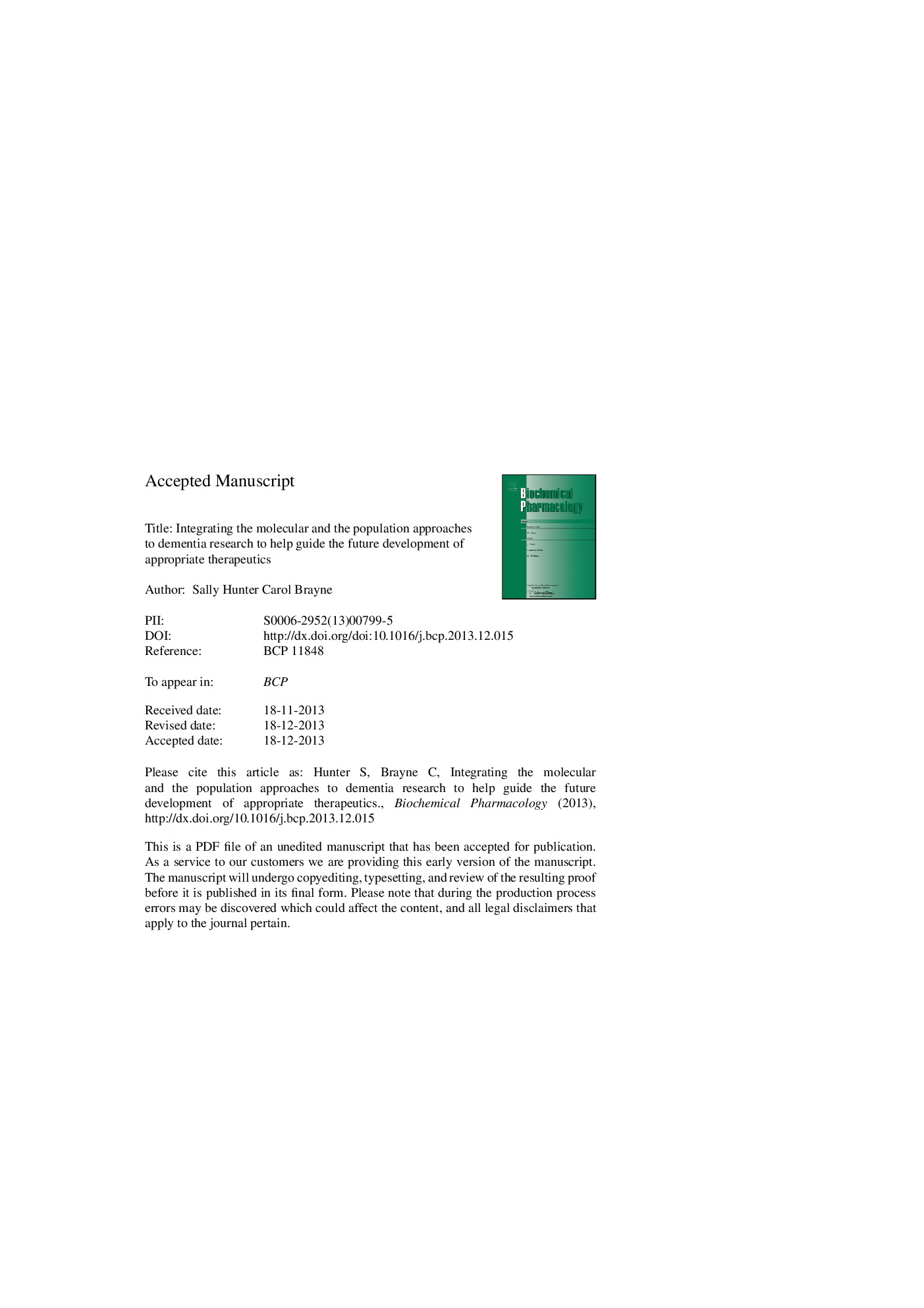| Article ID | Journal | Published Year | Pages | File Type |
|---|---|---|---|---|
| 5823606 | Biochemical Pharmacology | 2014 | 46 Pages |
Abstract
Dementia research over the last 50 years has expanded enormously and has greater international interest now than at any time in history. A variety of scientific approaches have been brought to bear on this complex disorder in which the syndrome of clinical features is its defining importance in societal terms. Little has emerged in terms of tangible benefits for people with dementia to date other than a hugely increased awareness at societal and governmental levels. One of the drivers for the increase in focus has been epidemiological evidence, which has provided background numbers for the justification of resources for dementia research. However it can be argued that this justification did not take into account the true meaning of the population evidence, drawing instead on preconceptions which were, at the time, the widely accepted interpretations of earlier evidence. Current evidence, along with the lack of single therapeutic successes, suggests that a clearer analysis is required which not only examines the value and applicability of existing knowledge, most particularly its generation and generalizability, but also where future investment should go for most likely benefit of populations. This includes a hard look at the pre-occupation of societies with single therapies, their place in the context of prevention more generally, particularly within aging populations, and how evidence is generated on likely impacts and their timeframes.
Related Topics
Health Sciences
Pharmacology, Toxicology and Pharmaceutical Science
Pharmacology
Authors
Sally Hunter, Carol Brayne,
